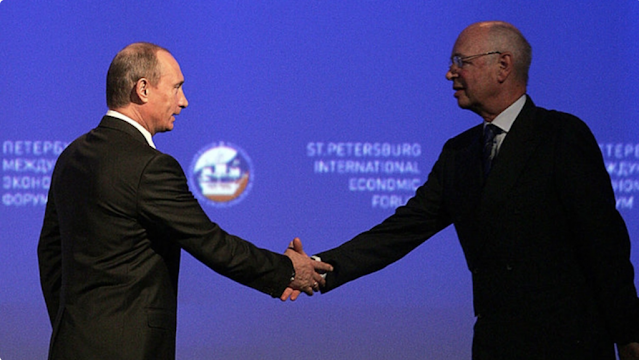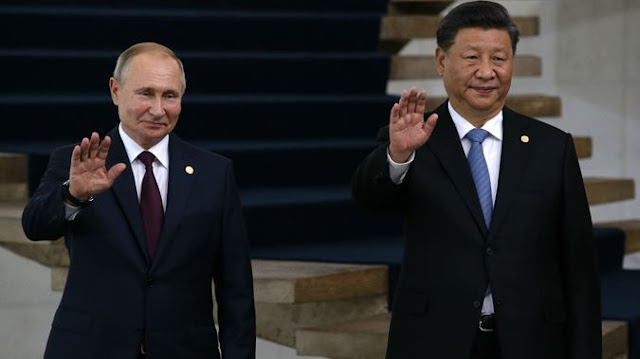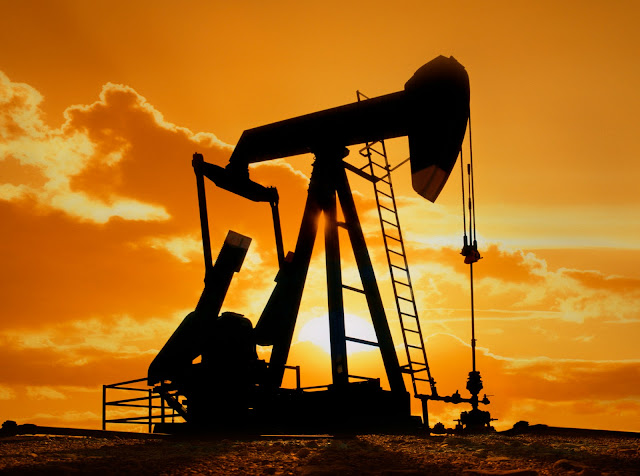By Michael Barone, Senior Political Analyst | The Washington Examiner
It turns out that we live in a nationalist world. That’s
one of the lessons people are learning from the surprise early results of the
Russo-Ukrainian war.
This is certainly not a welcome development for Davos Man — for the
leaders of great international agencies, financial institutions, and
corporations that gather in Switzerland in January or at Bilderberg conferences
in May. They’ve been hailing the erosion of national barriers and the
benefits of crossnational decision-making for years.
But Russia’s invasion of Ukraine, and the responses to it
(by Ukrainians and by leaders and peoples around the world) prove that
nationalism matters, for the worse but also for the better.
Start with the version of Russian nationalism that evidently inspired Vladimir
Putin to invade. It is an incomprehensible decision not only to Davos Men,
but also to viewers of every cable news channel.
But it was telegraphed by Putin’s speech at the March 2007 Munich Security
Conference and in his July 2021 article on “the historical unity of Russians
and Ukrainians.”
Putin traced that unity back to the Ninth Century Rus’ federation centered
on Kyiv and in Tsarist Russia’s conquest of much of what is now Ukraine in the
17th and 18th centuries. He cited the similarity of the Russian and
Ukrainian languages and their common Eastern Orthodox religious tradition.
The actual history is more complicated. As the historian Timothy Snyder has
shown, the boundaries of political entities in Eastern Europe have changed many
times in the past 500 years. Most recently, there was the split-up of the
multiethnic empires after World War I, Josef Stalin’s reshufflings after World
War II, and the changes after the fall of the Soviet empire in 1989-91.
Since Feb. 24, Ukrainians’ resistance to the Russian invasion has shown that
Ukrainian nationalism is strong even if, as Putin claims, it has shallow
historical roots. Election results show that although eastern and southern
Ukraine strongly supported pro-Russia candidates for president from 2004 to
2014, that support had largely dissipated by 2019.
Putin’s annexation of Crimea and Donetsk seizures seemed to have strengthened
Ukrainians’ nationalism, whereas the desultory performance so far of the
Russian military suggests that Russian nationalism is not as strong as Putin
would like.
The larger lesson is not that all nationalism is bad, but that good nationalism
can have strengths bad nationalism lacks. It’s a lesson that Winston
Churchill, Franklin Roosevelt, and Charles de Gaulle taught more than seven
decades ago and that the world is learning once again.
Another lesson is that the age of armed conflict is not over. German
diplomats at the United Nations laughed when President Donald Trump chided
their country for spending less than the promised 2% of GDP on defense. But
no one was laughing when new Chancellor Olaf Scholz, shocked by Putin’s
aggression, told the Bundestag Feb. 26 that Germany must spend 110 billion
euros more this year.
Germans are, admirably, wary of bad nationalism. But they have just learned
that sometimes there is no substitute for the good variety.
The Ukraine war is also teaching a lesson about energy. Europe, with Germany in
the lead, and the United States under Biden have been raising energy prices and
reducing reliability. They have leaned increasingly on renewable wind and solar
sources and, in Germany's case, on natural gas piped in directly from Russia.
Now, Germany has nixed the Nordstream 2 pipeline, and the U.S. has stopped
buying Russian oil. Germans may be ruing their 2011 decision to shutter
nuclear power plants. Europeans, now welcoming American liquefied natural
gas, may question why they banned fracking, which, at least until Biden
imposed restrictions, has produced so much oil and gas here.
The larger lesson is that it makes sense for nations to rely on their own
available energy sources now and that the costs of depending on Russia
or on intermittent green renewables are much greater than putative climate
benefits that might arise 75 years from now.
Another lesson: Nationalisms have historical roots, with consequences. Davos
Man in the 1990s hoped that elections and privatizations in Russia and trade
and technology in China would make those nations liberal societies. Unhappily,
they haven’t.
Russia’s history of suppressing personal and property rights (see historian
Richard Pipes) and China’s history of obedience to central authority persisted.
The sweeping aside of term limits by Putin and Xi Jinping were warning signs
that American leaders, beneficiaries of George Washington’s precedent, unwisely
ignored.
Now Americans and Europeans have no difficulty in identifying Putin’s
nationalism as malign, with some people going to childish extremes and
boycotting Russian composers and Russian-cuisine restaurants.
Time for a better lesson — for newly aroused nationalists to appreciate the
strengths and achievements of other people's nationalisms, even as we try to
improve our own.
https://www.washingtonexaminer.com/opinion/columnists/ukraine-shows-we-live-in-a-nationalist-world
__________________
RELATED
ARTICLES
Dealing With Devils
By Judd Garrett
Senator Elizabeth Warren tried to redirect the blame of
the rising gas prices by attacking the oil and gas companies when she lashed
out at them by saying, "The cause of rapidly rising energy prices for
consumers and manufacturers is clear: some of the nation's largest and most
profitable oil and gas companies are putting their massive profits, share
prices and dividends for investors, and millions of dollars in CEO pay and
bonuses ahead of the needs of American consumers and the nation’s recovery from
the pandemic… these price increases are being driven by energy companies’
corporate greed and profiteering."
But ironically, it is her industry, the government, which
profits off the oil and gas industry the most. The profit margin for oil and gas companies on their sale of
gasoline is 6.8% which is 6.8 cents on every dollar spent on
gasoline. So, when gasoline cost four dollars per gallon, the profit the oil
and gas company makes from the sale of 1 gallon of gas is 27 cents. Ironically,
the tax on gasoline is on average 53 cents per gallon. So, the
government, which people like Elizabeth Warren represent, who are continually
calling oil companies price gaugers and profiteers, makes twice as much money
off the sale of gasoline than the greedy oil companies. And the government does
nothing to produce the gasoline that is sold, they are solely profiting off of.
And it is usually their misguided policies which are driving up the price at
the pump. But Elizabeth Warren will never say any of this because it would
expose the scam that she is in on.
As gas prices are averaging over $5 per gallon nationwide
and are expected to climb as high as $7 or $8, the Biden Administration has
considered reaching out to Saudi Arabia, Iran and Venezuela to import their oil in an attempt to
contain rising gas prices by offsetting the loss of the oil imports caused by
his action against Russia. So, we are simply trading dealing with one devil to deal with
three devils. We are being told that paying an extra $2-$3 more
per gallon at the pump to squeeze the evil Vladimir Putin is not only the most
effective course of action to end the war in Ukraine, but also the moral and
patriotic thing to do because Putin is an evil dictator, and must be stopped.
Late night talk show host, Stephen Colbert said, “a clean conscience is worth a buck or two. It’s important.
I’m willing to pay $4 per gallon. Hell, I’ll pay $15 per gallon because I drive
a Tesla.” If I can’t afford to pay $2-$3 more at the pump, I
definitely can’t afford to buy a $60,000 car. Actor George Takie told
Americans, “We can endure higher prices for food and gas if it means
putting the screws to Putin. Consider it a patriotic donation in the fight for
freedom over tyranny.” If you’re a millionaire actor, doubling
or tripling gas prices means absolutely nothing to your lifestyle.
It is strange that we are being told that it is our civic
duty to pay more at the pump to go after an evil dictator, Vladimir Putin, but
Donald Trump was widely criticized when he went after China’s evil dictator,
President Xi with tariffs. Senator Ben Sasse tweeted about Trump’s China tariffs,
“if he’s even half-serious, this is nuts… He’s threatening
to light American agriculture on fire… This is the dumbest possible way to do
this.” Senator Orrin Hatch said, “These tariffs… harm American manufacturers, damage our
economy, hurt American consumers, and disrupt our relationship with our
long-term allies.” Senators Dianne Feinstein and Kamala Harris sent a
letter to U.S. Trade Representative Ambassador Robert Lighthizer saying, “These tariffs would be particularly harmful for California,
which has the country’s largest consumer electronics sector… would hurt
American businesses and workers, they would also raise consumer prices.”
A few years ago, it was not patriotic to pay a few more dollars for
consumer goods to hurt an evil dictator, but now it is.
And is Vladimir Putin any more-evil of a human being than
President Xi? They are both murderous tyrants. Putin invades a sovereign
country killing innocent Ukrainian civilians, President Xi runs concentration
camps where innocent Uyghurs are forced into slave labor and eventually
executed. President Xi oversees a country where 9-year-old girls are forced
work in sweat shops 12 hours a day for pennies. In light of all that, is
President Xi a morally superior person than Vladimir Putin that he is
untouchable from economic sanctions? Does anyone believe that the genocide and
human rights abuses in China are any less horrific than what Russia is doing in
Ukraine? It is moral to pay an extra $2-$3 more per gallon to hurt Vladimir
Putin, but wrong to pay a few dollars more on imported consumer goods produced
in China to hurt President Xi.
Why does President Xi and China always get a free pass?
Why do we continually overlook all of the evil things he is doing, but so
willing to take a hard line against Vladimir Putin? Have woke companies, like Coca-Cola, McDonald's, Starbucks, and PepsiCo
stopped doing business with China in protest of their horrible human rights
violations like they have done in Russia? Why is a country that commits
genocide, uses slave labor, and has one of the world’s worst human rights
record, our 3rd biggest trading partner and the leading importer into America,
but we are unpatriotic if we do business with Russia?
Maybe because China has the second largest economy in the
world, while Russia’s economy is smaller than Texas’ economy, half the size of
California’s, and 1/8 the size of China’s. A study on the Chinese tariffs
concluded that out “of 2,859 companies across sectors that are publicly traded
on the U.S. stock market… more than half… were connected to the Chinese
economy.” Cutting off trade with Russia does not substantially hurt
American big businesses because Russia is not even one of our top 15 trading
partners, and we only account for 3.6% of Russian Trade, so
virtue signaling about Russia is very inexpensive to American companies because
the average American is paying the cost of higher gas prices, while taking a
moral stand against China would carry dire financial costs to corporate America
because most are in bed with China.
So, our virtue and moral outrage is only reserved for
countries who do not have a top ten economy; it is not based on the evil that a
country does, but how big the economy of the evil country is. If doing business
in Russia is financially supporting their war in Ukraine, then doing business
in China is supporting China’s Uyghur concentration camps, forced labor and
genocide. If it’s patriotic to cut off Russian oil into our country, then it
must be equally unpatriotic to import consumer goods from China. But we
willfully look the other way at the murderous regime running China because
trade with China has become the life blood of our economy, but soon that
genocidal regime will be running the world. So, contrary to the screeching of
Elizabeth Warren, it is not the companies who produce domestic oil and gas, so
we will no longer be beholden to an evil dictator for our energy needs that we
should vilify, rather it is the greedy American companies who are selling us
out to the genocidal Chinese Communist Party who are the biggest threats to
America.
____________________
Blame the government for our woes
BY CAROL ROTH | THE BLAZE
Every major problem we are facing today is not because of
war, but because of the arrogance, ignorance, and incompetence of government
central planners and their cronies.
The elites pushing their agendas and their cronies’ pet
projects, whether through short-sightedness or nefarious intentions, have
delivered an obvious negative outcome for America.
Our economic woes started long before Putin’s invasion of
Ukraine. And while Putin deserves the blame for war, our government central
planners get the full credit for our economic and national security
vulnerabilities.
The highest inflation in the last 40 years was recorded
before eastern Europe even entered the conversation. This came on the back of
central planning decisions, while those central planners feigned ignorance as
to the outcome. The Federal Reserve printing trillions of dollars and the
trillions more of government “relief spending,” increased further with Biden’s
“American Rescue Plan,” were enough to drive substantial inflation. Add to that
the decisions that turned off large swaths of the economy over the past couple
of years and structurally kept workers out of the labor force, which also
disrupted the supply chains and labor markets to increase the inflationary
pressures.
Then, include the Biden administration’s suspending oil
and gas leases, withdrawing the permit for the Keystone XL pipeline, and the
crony corporate kowtowing to the elite push for ESG reducing oil- and
gas-related investment; these actions all impacted rising gas prices before
Putin’s madness came into play.
Once Russia invaded Ukraine, these existing
vulnerabilities became bigger weaknesses, something that should have been
obvious to the average American, let alone those in government “leadership”
positions.
Not expanding the United States' capacity as a producer
of oil and gas resources was both a farce and an obvious national security
issue. It didn’t decrease the demand for those resources (although the pandemic
reactions did temporarily); what it did was shift some percent of the
production from the U.S., which has the technology, capabilities, and
incentives to produce more cleanly, to nations run by terrorists, tyrants,
human rights abusers, and other generally bad people. These regimes and
countries share the same planet, yet do not produce as cleanly as the U.S.
could.
That’s quite a “green” strategy — both from an economic
“green” and an environmental “green” standpoint.
These decisions have reverberations globally, creating
vulnerabilities for our allies in Europe, who also reduced their own nuclear
and oil and gas energy production, exposing them to geopolitical strife.
So, while we could have been fortifying U.S. production
so that one or more foreign bad actors wouldn’t be able to leverage that
against us, our government and corporate cronies couldn’t see (or didn’t care)
what was flashing in front of them like a giant neon sign and ultimately did
nothing on that front.
These actions will only worsen the already fragile U.S.
economic situation caused by their other policy decisions.
The average American ends up paying the price, both
figuratively and quite literally.
It’s not just oil and gas. The past two years exposed the
weakness of depending on China for key inputs and products. The Russian
invasion is highlighting other dependencies, ranging from nickel (which is a
key component in the batteries used to make electric vehicles, among many other
things), aluminum, wheat, fertilizers, and many other products that are key to
a smooth functioning economy and everyday living, and some that could even lead
to bigger crises, like food shortages in parts of the world.
Instead of strengthening America, both for economic
security and national security, the central planning government leaders have
been actively making us more vulnerable, taking policy direction from people
who range from activist-sponsored teenagers to global entities that would be
thrilled with the destruction of the American economy and way of life.
There will always be some bad actor around the corner,
and we must be prepared. It’s far past the time to reverse these bad government
policy actions and focus on a stronger America and better strategic
decision-making.
If we don’t hold government accountable and enact change,
then we will only have ourselves to blame.




